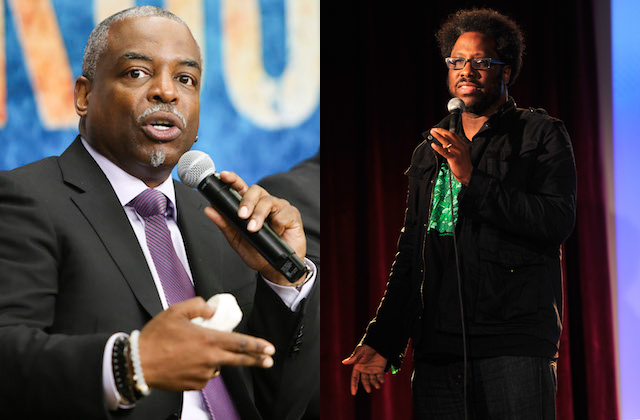With its brutally realistic depictions of slavery and LeVar Burton‘s career-defining performance as "Kunta Kinte," the "Roots" miniseries captivated American audiences of all backgrounds in 1977. Now, Burton serves as executive producer for an upcoming "Roots" remake, which will air on History for four nights starting Memorial Day (May 30). "United Shades of America" host W. Kamau Bell* recently interviewed the actor about "Roots" and the necessity of slave narratives for Mother Jones.
The Q&A, which you can read here in full, appears in the magazine’s May/June 2016 issue. In the excerpt below, Burton discusses the new series’ contemporary relevance:
WKB: Will [the connection between the past context and the present] be apparent to somebody who isn’t a person of color living under the glove of racism?
LB: I don’t know that it will be readily apparent to everyone. But I’m hoping that the conversation around "Roots" when it airs will fill in the gaps so that it is absolutely, unavoidably clear that America today is directly related to America of the antebellum South and the slave trade. And that some of the issues that we still grapple with have their roots in slavery and its attendant legacy of racism.
Burton also noted the new series’ updated historical references:
WKB: Kunta has a new origin story, too. Slave trading among the tribes is one of the first things we hear about. We also learn the Kintes are Muslim, which feels like another thing to signal blast: Not all Muslims are from the Middle East!
LB: When [author of the original series and the novel that inspired it] Alex Haley did the original research, we didn’t know Juffure was a major center of commerce. That information is due to the success of the novel and the miniseries; many more people were interested in studying West Africa, and specifically Gambia. We know now that the Mandinka were horse warriors—we didn’t know that in the ’70s. These are essential elements. We had historians involved in every aspect: set design, costume design, music.
Read the full interview here.
*W. Kamau Bell is a former board member of Race Forward, the organization that publishes Colorlines.
